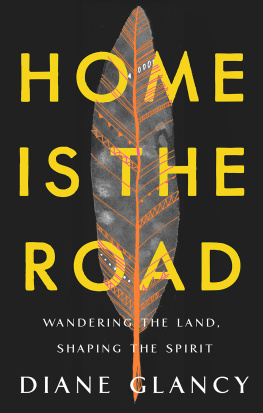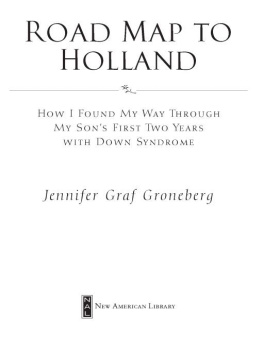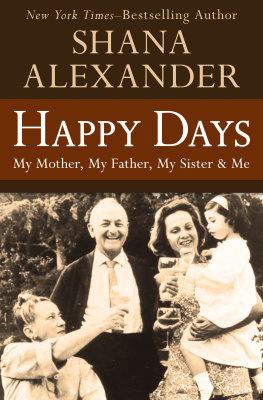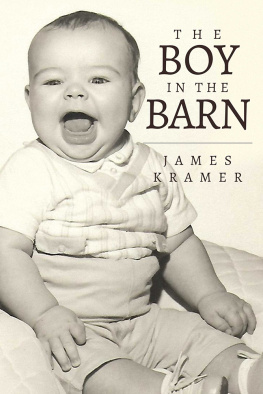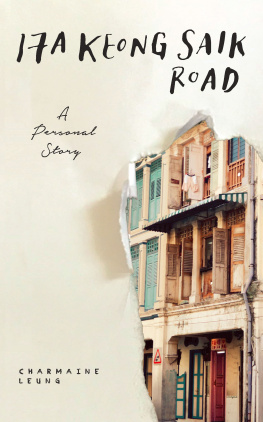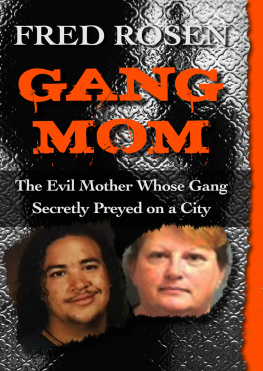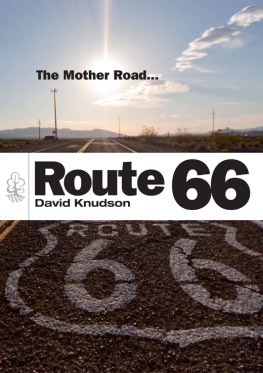ONE
I AM thirty years old as I write this, and have been a hobo for fifteen years, a sister of the road, one of that strange and motley sorority which has increased its membership so greatly during the depression. I have always known strange people, vagrants, hoboes, both males and females. I dont remember when I didnt know about wanderers, prostitutes, revolutionists. My first playhouse was a box car. Conductors in freight yards used to let me ride in their cabooses. Before I was twelve I had ridden in a box car to the next division and back.
Police and pinches, jails, bughouses, and joints seem to have been always a part of my life. When I knew that a man was stealing, or a woman hustling, or some poor girl going nutty, or that a guy was on the lam, or learned that a pimp was living with four womenit all seemed natural to me, an attitude given me by my mother, to whom nothing was ever terrible, vulgar, or nasty. Our family never had any hard luck, because nothing seemed hard luck to it, nor was it ever disgraced for there was nothing which it would acknowledge as disgrace. When my mother changed her husband, I simply took it for granted. When I was pinched the first time for riding in a box car, it didnt seem unusual to me. Many of the men and women I knew had been arrested for the same thing. In my world somebody was always getting arrested. My mother was arrested when I was a baby because she wouldnt marry my father. As I grew up, if we missed a meal or two now and then, or a half-dozen meals, it wasnt anything to get excited about. All my life I have lived with hungry and lonely people.
My mother wasnt what the world would call a good woman. She never said she was. And many people, including the police, said she was a bad woman. But she never agreed with them, and she had a way of lifting up her head when she talked back to them that made me know she was right. I loved her deeply from the first day I can remember until she died. I love to think of her. Her example and influence and sacrifice (she always denied that she ever made sacrifices for her children) proved that she loved us and that she was a woman of rare courage and of fine principles all her own. I remember her first when she was cooking in a railroad camp for a section gang not far from Dead wood, South Dakota. The man whom I called father was the foreman of the gang laying the tracks of the Northwestern. I was the oldest of mothers four children. Each of us had a different father.
Hobo, hobo, where did you come from? is the earliest chant I learned. There were always wandering men, and even then a few women traveling on the railroad and on the highway. I read an article the other day saying that now women hoboes and tramps have so increased that one out of every twenty persons on the road is a woman. I dont know what the percentage was when I grew up, but I remember some of these women very vividly, probably because there were so few of them then.
I heard Harry Hopkins, relief administrator, speak this year. He says that now we have 6,800 transient women in the country. This count is taken from the government shelters and transient bureaus. There must be twice that many actually unattached and hitch-hiking and riding freights and walking about the country. That would make 13,600 women, sisters of the road, as the men call us. No wonder people are writing books about us!
My childhood was completely free and always mixed up with the men and the women on the road. There werent many dolls or toys in my life but plenty of excitement. We were set down on side tracks in the midst of vast hills and ravines. We used the river for swimming and washing. I learned my first spelling from the names on the box cars. What early geography I knew I learned by asking the men about the towns and cities, the names of which were chalked on the cars. I learned numbers by counting the cars on long freights.
I dont ever remember anyone telling me a real fairy story in my whole childhood, but the tales of the gandy dancers, and of the bundle stiffs, of their jobs in the wheatfields of Minnesota and the rides on the blinds to and from them, and the breath-taking yarns of mushing in Alaska, or getting pinched in San Francisco, or of drunken brawls in New Orleans dives were thrillers I remember to this day.
Some of the men in the gang had their families with them. Half the kids boasted that their cradles had been handcars. We took for playthings all the grand miscellany to be found in a railroad yard. We built houses of railroad ties so big that it took four of us to lift one of them in place. We invented games that made us walk the tracks. We crossed pins on the main tracks and let the big engines crash over them and leave tiny pairs of scissors for us. We played with the mens shovels and picks and learned to use them. And we lined up to wave with ceremony to the passenger trains that thundered by.
We girls dressed just like the boys, mostly in hand-medown overalls. No one paid much attention to us. They saw to it that we had something to eat and a place to sleep at night. And they saw to it that we did our simple chores. But the men never thought of changing their conversation in front of us. The men worked hard and the women worked harder. Mother was always busy cooking and serving meals and cleaning, and she taught me and the other girls how to cook and clean and to wash mens clothes.
Bertha, she would say, as long as you can keep men clean and well fed and love them a little, theyll be perfectly satisfied. Theyre all babies. They need to be looked after. Teach them to depend upon you. But never let them make a slave of you.
Mother was a handsome blonde, straight-shouldered, deep-breasted, with penetrating steel-grey eyes, and with a sort of glow about her that attracted everyone, especially when she talked. She was the kind of woman who looks after everyone, and everybody called her Mother Thompson even when she was so young that all the tramps (as well as all the others) tried to make love to her.
Her father, Moses Thompson, was a Kansas pioneer, who spent his whole life trying to right the wrong of the oppressed. He was an abolitionist. When he was yet in his teens he worked with John Brown and he served in the Civil War. Later he was one of the earliest workers for the emancipation of women, and published, at Valley Forge, Kansas, a little paper, The Womens Emancipator, advocating votes for women and freedom from marriage. He was one of the committee that in the Eighties organized the famous free-love convention at Worcester, Massachusetts. He served three terms in jail, two for sending birth control information through the mail (the federal authorities called it obscene), and one for admitting that he advised his daughter, my mother, against marrying the father of her child.
When mother was twenty, grandfather was living on the farm and publishing his little paper. Walker C. Smith, an active free-thought and eugenist propagandist, a man of forty, stopped in while making a tour of the west. He had corresponded with grandfather. He stayed at the farm and became mothers lover the first week. Grandfather knew it. He urged her not to marry. During the last months of her pregnancy, the neighbors began to talk, and five days after I was born, the village parson, the sheriff, and three good citizens came and asked bluntly whether mother was married or intended to marry.
No, my daughter is not married, grandfather told them, and, what is more, she is not going to be married. She and Smith love one another and they have a child because they wanted one. They are both intelligent and healthy, and thats all a child needs in its parents.
Someone swore out a warrant for the whole family, and two weeks later they were tried at the county seat. Mother and father were sentenced to six months in jail. Grandfather was fined a hundred dollars and costs, which he promptly refused to pay. So he was sent to jail too. All of them enjoyed their stay there. Grandfather wrote a series of articles which were published in the New York and London liberal papers. Father caught up on his back reading. Mother did the jail cooking and sewing, nursed me, and studied Esperanto and socialism.


